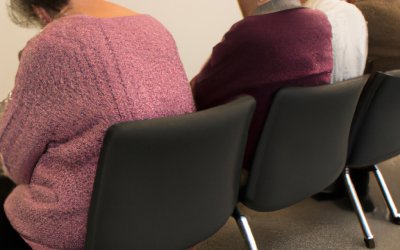Harriet Sergeant’s investigation of the NHS, the final part of which we publish today, is as frightening as it is infuriating. It describes a healthcare system in which the most fundamental rules of hygiene and patient care are ignored, the costs of basic supplies run out of control for sheer lack of common sense, and incompetent staff cannot be disciplined.
Miss Sergeant’s central theme is that mis-management has become endemic in the hospital service, and that this is directly related to centralised government control.
No one with any degree of responsibility for NHS policy, reading Miss Sergeant’s research, could fail to realise that the problems of the hospitals will not be solved simply by additional funding or even by superficial bureaucratic “reforms” which aim to make them more accountable.
Miss Sergeant cites lists of “information gathering” exercises and endless monitoring projects whose function is supposedly to make the running of the system more effective for patients but, in fact, reduce the time and financial resources which can be devoted to caring for patients.
In order to cope with the Government’s stream of “initiatives” – almost none of which survives long enough to reach completion – the NHS must recruit armies of information analysts, service planners and project managers, when what patients most urgently require is more nurses on the wards.
One particularly fatuous scheme involved funding PALS (Patient Advocacy and Liaison Service) officers, whose chief function was to compensate for the lack of nurses available to address patients’ needs – when hiring more nurses to talk to patients would obviate the need for PALS.
But it is also clear that employing greater numbers of medical, nursing or ancillary staff is not the only, or even the central, issue in solving the hospital crisis. However many nurses are employed, the care of patients will scarcely improve if those nurses are not sufficiently disciplined to wash their hands.
However many ancillary and cleaning staff are employed, the terrifying spread of hospital infection will not be arrested unless cleaners are made to wash blood stains from floors and to disinfect toilets.
What kind of healthcare culture is it in which the principles of hygiene, discovered a century and a half ago, are neglected? What kind of management is it that permits sloppy staff to put patients at risk, because it fears being accused of “harassing” its employees?
The NHS is often criticised for being a “producer-dominated” rather than a consumer-oriented service. What Miss Sergeant’s report suggests is that the sensibilities of hospital staff are now being given a higher priority than the comfort, or even the safety, of patients.
The cult of non-hierarchical personnel management, in which any enforcement of standards is seen as unacceptably authoritarian, has been destructive in many professions, but in healthcare – where proper standards are a matter of life and death – it is grotesquely irresponsible.
The failure to get to grips with staff intransigence is matched by incompetence in financial management – the one area where a supposedly cost-conscious Whitehall might be thought to bring serious pressure.
Time and again, Miss Sergeant’s “middle managers” appear to make ludicrous misjudgments and expensive oversights which would shock any decent accountant or small business owner. The old nationalised industry model prevails: spending taxpayers’ money is done with slapdash inattention to waste.
How has it come to this? How has a health service which began with the most idealistic motives, and which embodies in many of its staff the highest sense of vocation, managed to lose its way so? Why do we find ourselves with a hospital system that has more administrators than beds? And why do those administrators seem incapable of putting patient care at the top of priorities?
The NHS is a government monopoly which is effectively being run by a tier of managers whose chief responsibility is to meet the demands of politicians rather than of patients. Instead of being accountable to patients, it is accountable to the centre.
As there is no price mechanism, resources are allocated by bureaucrats shovelling money into the system at one end, rather than by patient demand at the other. The Conservatives have started to think along the right lines, but even they have more work to do. For until the patient has some purchase on the system, preferably through health insurance – as in France – British hospital care is unlikely even to be able to address, let alone solve, its problems.


